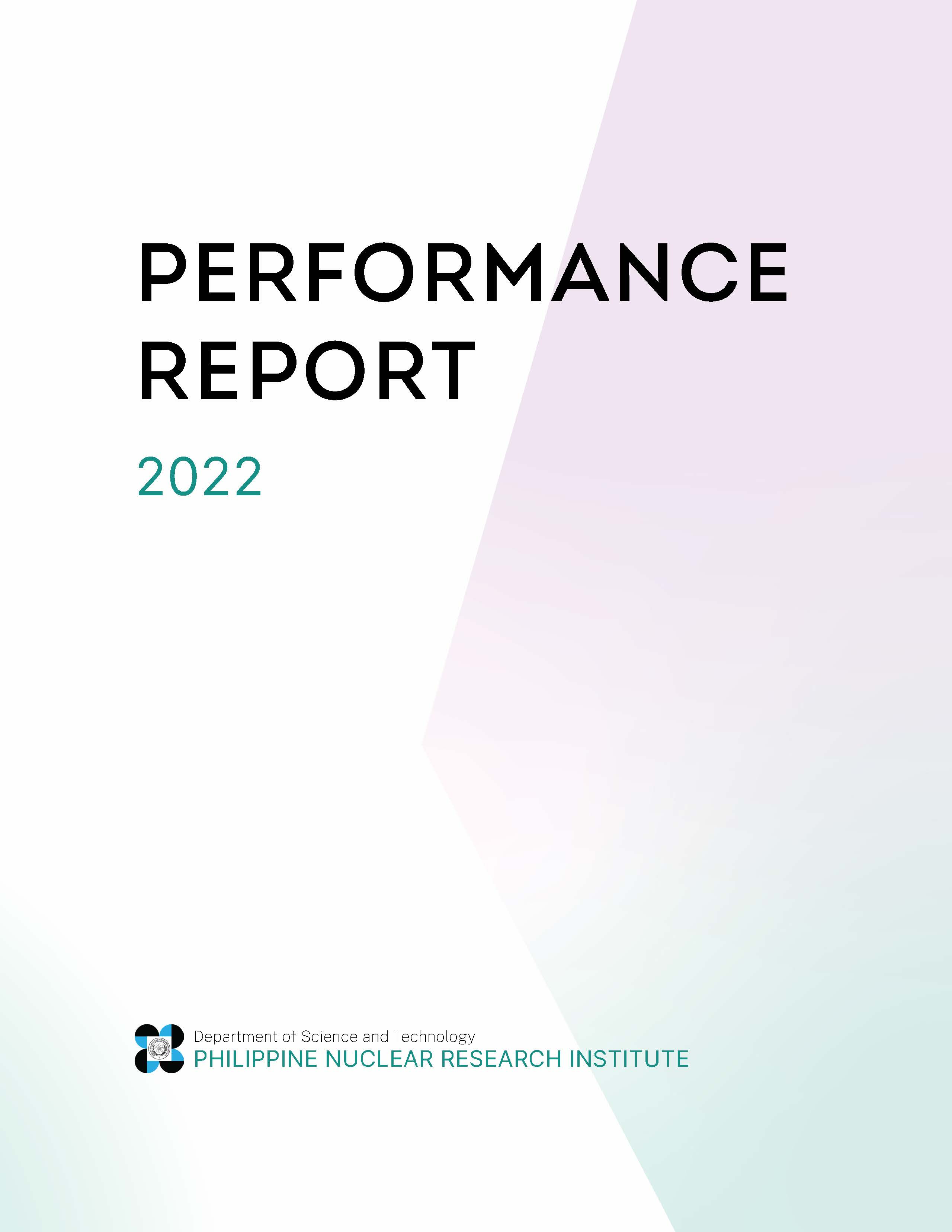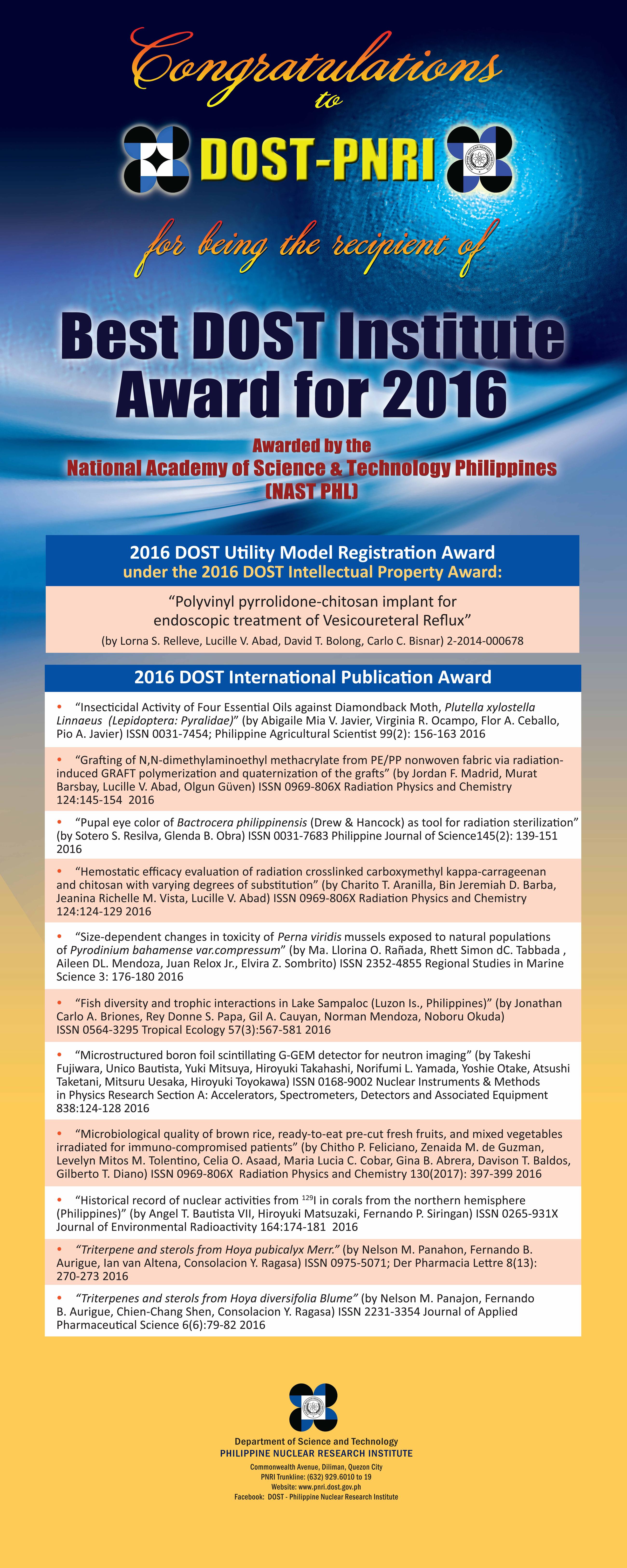PNRI at DOSTv - Receptor Binding Assay for Red Tide Monitoring
- Details
Learn more about PNRI's research and development on the Receptor Binding Assay (RBA) technology for Harmful Algal Blooms, more commonly known as "red tide" in this episode of DOSTv on March 27, 2017, featuring PNRI Chemistry Research Section Senior Science Research Specialist Mr. Rhett Simon Tabbada.
PNRI Researcher Wins Awards in Japan
- Details


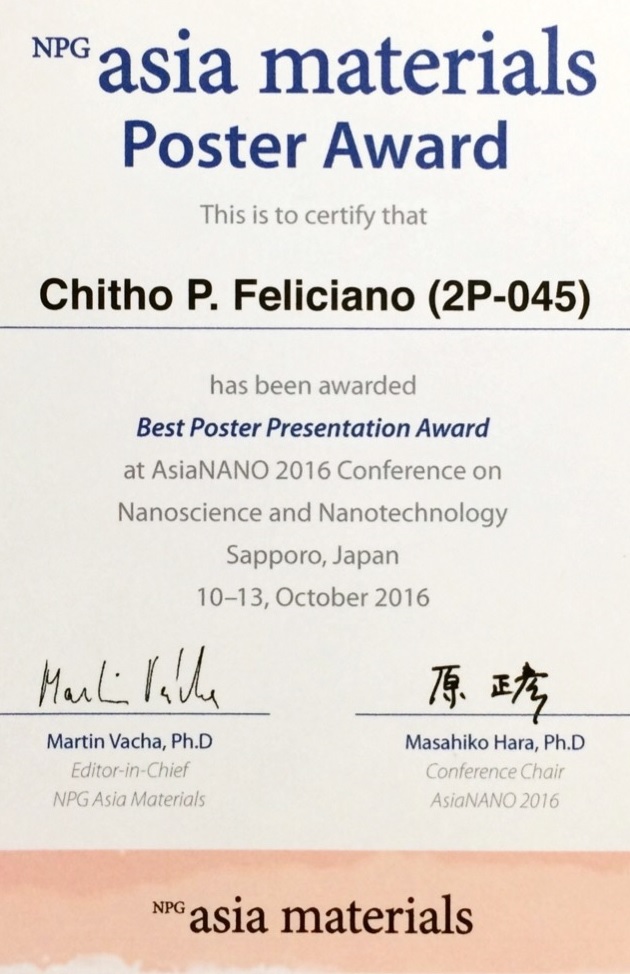
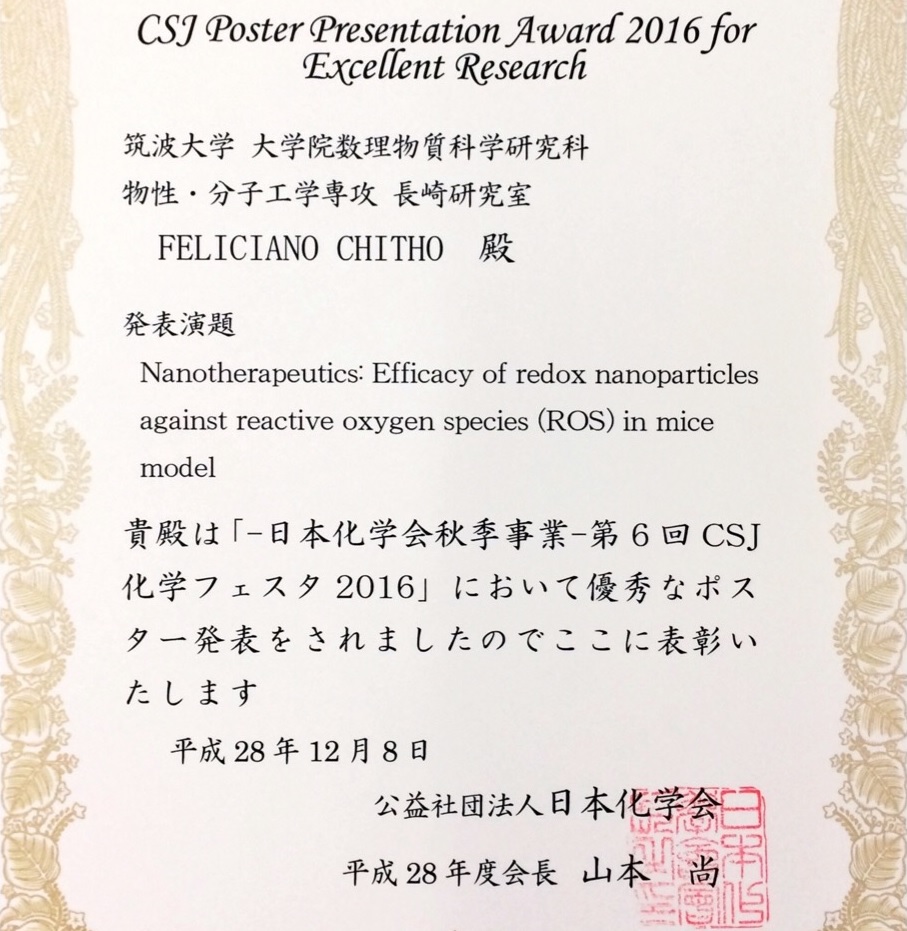
Mr. Chitho Feliciano of the PNRI Biomedical Research Section (top left) wins the De Silva Prize for Best Oral Presentation (top right) in Tsukuba, Japan, the Best Poster Presentation Award during the AsiaNANO Conference (below left) in Sapporo, Japan, and the Best Poster Presentation Award at the Chemistry Society of Japan Festa (below right) in Tokyo, Japan.
PNRI Researcher Wins Awards in Japan
Digging deep into technologies to protect the skin from the effects of radiation, PNRI’s research once again gains the respect of the international community by winning several awards in Japan this 2016.
PNRI Biomedical Research Section senior science research specialist Chitho Feliciano, who is currently taking up his doctorate in Biomaterials Science at the University of Tsukuba since 2014, received the De Silva Prize for Best Oral Presentation at the Interdisciplinary Workshop on Science and Patents during the Tsukuba Global Science Week held in Tsukuba on September 19, 2016.
Feliciano’s research, which was done in collaboration with his Japanese professor, also won two Best Poster Presentation awards. The first was during the Asian Conference on Nano-science and Nanotechnology (AsiaNANO) in Sapporo on October 10-16, followed by the 6th Chemistry Society of Japan (CSJ) Festa held in Tokyo on November 14-16.
His studies aim to use nanoparticles to improve the therapeutic effect of nitroxide radicals and to reduce the effects of skin aging, skin lesions, and other skin inflammatory disorders caused by ultraviolet rays and other forms of ionizing radiation, as well as radiation-induced reactive oxygen.
PNRI Wins Best Poster Award in Canada for Plant Growth Promoters
- Details
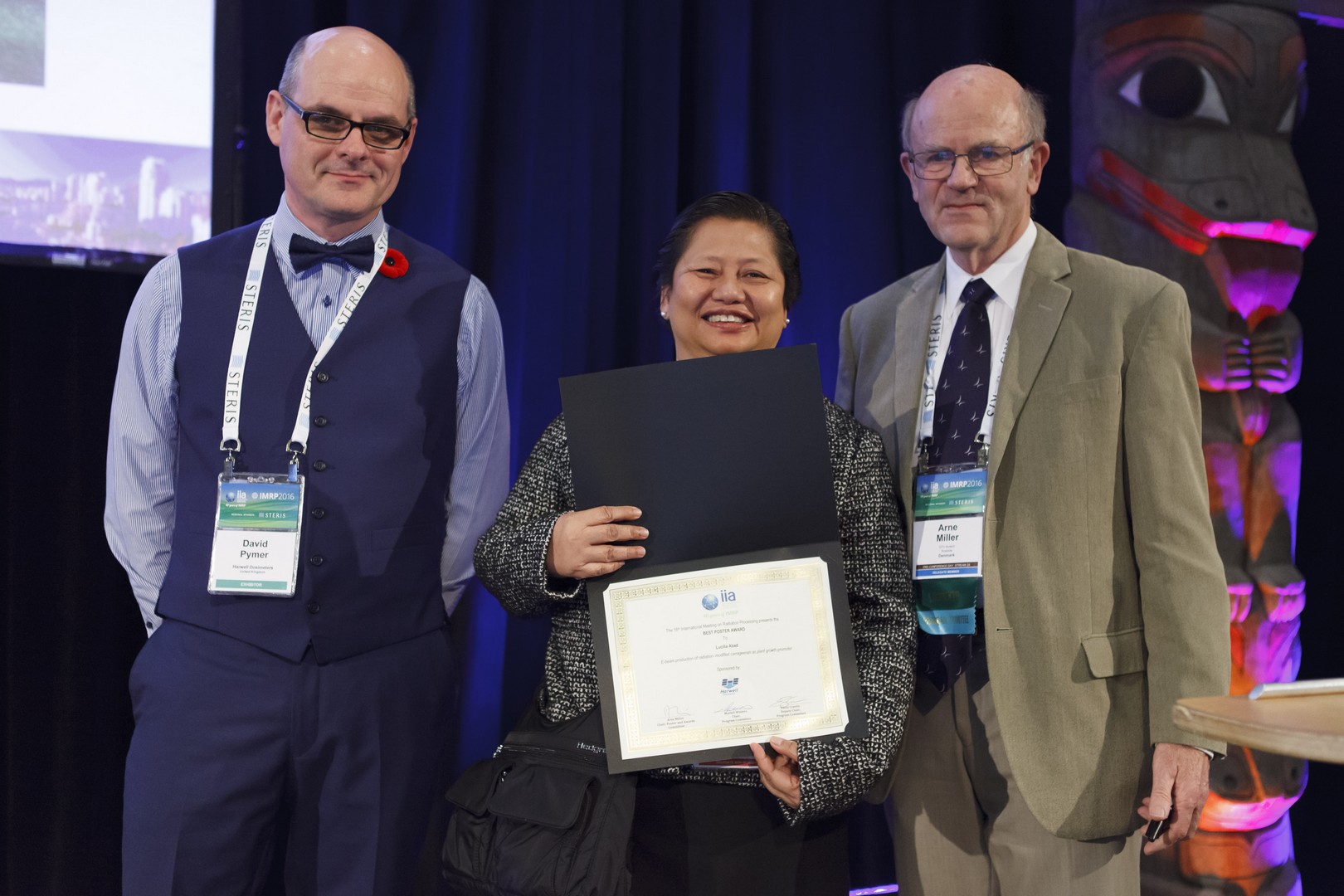
PNRI Scientist Dr. Lucille Abad receives the Best Poster Award from the International Irradiation Association (IIA) for the PNRI project on the development of irradiated natural polymers as Plant Growth Promoters (PGPs) on November 10 in Vancouver, Canada.
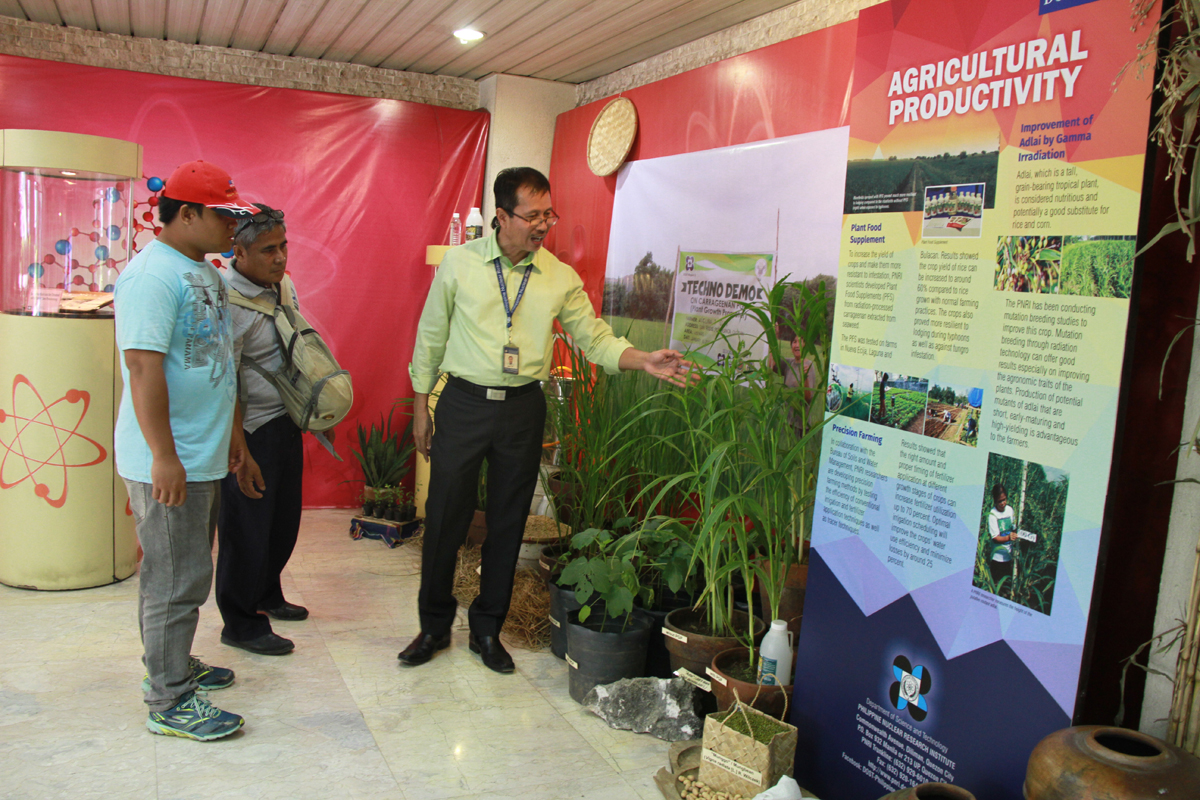
PNRI research specialist Fernando Aurigue explains the PGP exhibits to visiting farmers during the 44th Atomic Energy Week at PNRI.
PNRI Wins Best Poster Award in Canada for Plant Growth Promoters
Bringing home the bacon from the other side of the world, the Department of Science and Technology – Philippine Nuclear Research Institute (DOST-PNRI) ends 2016 by once again gaining worldwide recognition for its research on radiation applications in agriculture.
With their project’s E-Poster “E-beam production of Radiation–Modified Carrageenan as Plant Growth Promoter”, PNRI Scientist and Chemistry Research Section Head Dr. Lucille Abad clinched the Best Poster Award for the Philippines along with other participants from the United States and Ireland during the International Meeting on Radiation Processing (IMRP) held from November 7-11 in Vancouver, Canada.
Organized by the International Irradiation Association, the IRMP serves as a venue where members of the industrial, research and academic sectors from different countries discuss on all aspects of irradiation science and technology. This year’s IMRP poster competition drew submissions from over 80 countries, from which only three submissions, including the Philippines, were selected to receive the Best Poster Award.
The Institute’s PGP project was developed from carrageenan, a natural polymer from red seaweed commonly used in the food industry. The polymer is irradiated and applied by foliar spraying at certain stages of the plant’s life, which later improved the yield and health of crops such as rice, mungbean and peanut.
During field testing, PGPs were proven capable of increasing the yield of rice by up to 65% and making the crops more resilient, whether against strong typhoons or the ravages of tungro infestation. Experiments also showed an increase of up to around ten times the yield for normal practices in mungbean, and up to twice the average yield for peanut.
The PGP project is the product of close collaboration between DOST-PNRI, the Philippine Council for Agriculture, Aquatic and Natural Resources Research and Development and the National Crop Protection Center of the University of the Philippines Los Baños.















